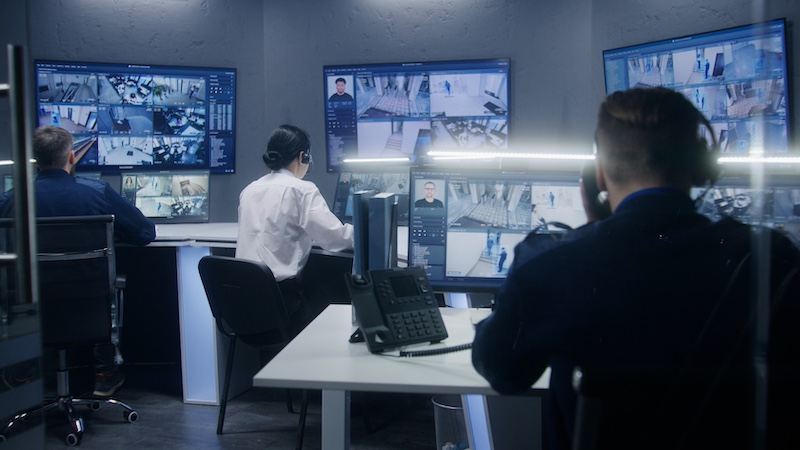
The European police authority Europol is convinced that artificial intelligence can play an important role in police work. But how can AI help the police solve crimes?
Artificial intelligence can also achieve a lot in the area of police work. The European police authority Europol is convinced of this.
In a report In around 60 pages, the authority describes how AI can support the police in their work. Europol assumes that AI will “deeply change the landscape of law enforcement”.
AI in the police: This is how it can support their work
Europol classifies artificial intelligence as a “thriving technology field”. This could “revolutionize the way we analyze complex data sets, improve forensic methods and develop secure communication channels”.
For example, AI can evaluate millions of financial transactions and detect suspicious money movements. The evaluation of digital devices, such as a smartphone, is only possible with technical help due to the large amount of data.
AI is also a game changer for the analysis of video surveillance material. But this is not only the case for subsequent evaluation. At public events, AI can analyze the images in real time for inconsistencies and thus increase security.
According to Europol, AI is also used in the area of biometrics. The systems can, for example, identify fingerprints, even if they are smeared or only partially present. It is also possible to recognize voices during telephone conversations.
Without the support of AI, law enforcement agencies can face significant challenges in deciphering massive amounts of data, leading to potential oversights, lengthy investigations, and missed opportunities to apprehend criminals.
The so-called “predictive policing” is also used, which is intended to improve the effectiveness and efficiency of police work. This includes, among other things, historical crime data and socio-economic data. An AI system can then identify “patterns related to the occurrence of crimes and unsafe situations”. The probability of a crime can also be determined in this way.
What role does EU regulation play?
Europol sees artificial intelligence as a “promising alternative”. It could help to enable the police to use their limited resources more efficiently.
Nevertheless, there are concerns about the use of AI systems by the police. This concerns, for example, data protection, but also bias and discrimination.
The EU AI regulation is intended to ensure the right framework conditions here. However, law enforcement agencies would now need to review and possibly adapt their existing AI tools.
For example, biometric identification could be “strictly restricted” by the EU regulation. “As a result, police must work closely with AI researchers, developers, and ethics and data protection experts to ensure that new systems comply with regulatory requirements,” the report says.
Also interesting:
- Research: AI develops more creative ideas than 50 scientists combined
- Without consent: LinkedIn automatically uses user data for AI training
- AI in home surveillance can be “quite dangerous”
- New information: When is Apple Intelligence coming to Germany?
The article With AI: This is how the police will soon solve crimes by Maria Gramsch appeared first on BASIC thinking. Follow us too Facebook, Twitter and Instagram.
As a tech industry expert, I believe that the integration of artificial intelligence (AI) into police work has the potential to revolutionize crime-solving capabilities. With AI-powered tools and algorithms, law enforcement agencies can analyze vast amounts of data more quickly and accurately than ever before, leading to more efficient investigations and potentially faster resolutions to cases.
AI can help police departments identify patterns and trends in criminal behavior, predict potential hotspots for crime, and even assist in facial recognition and suspect identification. By leveraging machine learning and advanced analytics, law enforcement can make better use of limited resources and prioritize high-risk cases.
However, it is important to approach the use of AI in policing with caution and consideration for ethical implications. There are concerns about bias in AI algorithms, privacy issues related to data collection and surveillance, and the potential for misuse of technology in law enforcement.
Overall, I believe that AI has the potential to be a powerful tool in the fight against crime, but it is crucial for police departments to implement safeguards and transparency measures to ensure that these technologies are used responsibly and ethically. Collaboration between tech experts, law enforcement agencies, and policymakers will be essential in navigating the complex intersection of AI and policing.
Credits